第15章 III(1)
HIGH-SCHOOL AND COLLEGE DAYS
The end of the Civil War brought freedom to me, too. When peace was declared my father and brothers returned to the claim in the wilderness which we women of the family had labored so des- p erately to hold while they were gone. To us, as to others, the final years of the war had brought many changes. My sister Eleanor's place was empty.
Mary, as I have said, had married and gone to live in Big Rapids, and my mother and I were alone with my brother Harry, now a boy of fourteen. After the return of our men it was no longer necessary to de- v ote every penny of my earnings to the maintenance of our home. For the first time I could begin to save a portion of my income toward the fulfilment of my college dream, but even yet there was a long, arid stretch ahead of me before the college doors came even distantly into sight.
The largest salary I could earn by teaching in our Northern woods was one hundred and fifty-six dollars a year, for two terms of thirteen weeks each; and from this, of course, I had to deduct the cost of my board and clothing--the sole expenditure I allowed myself. The dollars for an education accumulated very, very slowly, until at last, in desperation, weary of seeing the years of my youth rush past, bearing my hopes with them, I took a sudden and radical step. I gave up teaching, left our cabin in the woods, and went to Big Rapids to live with my sister Mary, who had married a successful man and who generously offered me a home. There, I had de- c ided, I would learn a trade of some kind, of any kind; it did not greatly matter what it was. The sole essential was that it should be a money-making trade, offering wages which would make it possible to add more rapidly to my savings. In those days, almost fifty years ago, and in a small pioneer town, the fields open to women were few and unfruitful.
The needle at once presented itself, but at first I t urned with loathing from it. I would have pre- f erred the digging of ditches or the shoveling of coal; b ut the needle alone persistently pointed out my way, and I was finally forced to take it.
Fate, however, as if weary at last of seeing me between her paws, suddenly let me escape. Before I had been working a month at my uncongenial trade Big Rapids was favored by a visit from a Universalist woman minister, the Reverend Marianna Thompson, who came there to preach. Her ser- m on was delivered on Sunday morning, and I was, I t hink, almost the earliest arrival of the great con- g regation which filled the church. It was a wonder- f ul moment when I saw my first woman minister enter her pulpit; and as I listened to her sermon, thrilled to the soul, all my early aspirations to be- c ome a minister myself stirred in me with cumulative force. After the services I hung for a time on the fringe of the group that surrounded her, and at last, when she was alone and about to leave, I found courage to introduce myself and pour forth the tale of my ambition. Her advice was as prompt as if she had studied my problem for years.
``My child,'' she said, ``give up your foolish idea of learning a trade, and go to school. You can't do anything until you have an education. Get it, and get it NOW.''
Her suggestion was much to my liking, and I paid her the compliment of acting on it promptly, for the next morning I entered the Big Rapids High School, which was also a preparatory school for col- l ege. There I would study, I determined, as long as my money held out, and with the optimism of youth I succeeded in confining my imagination to this side of that crisis. My home, thanks to Mary, was assured; the wardrobe I had brought from the woods covered me sufficiently; to one who had walked five and six miles a day for years, walking to school held no discomfort; and as for pleasure, I found it, like a heroine of fiction, in my studies.
For the first time life was smiling at me, and with all my young heart I smiled back.
The preceptress of the high school was Lucy Foot, a college graduate and a remarkable woman.
I had heard much of her sympathy and understand- i ng; and on the evening following my first day in school I went to her and repeated the confidences I had reposed in the Reverend Marianna Thompson.
My trust in her was justified. She took an immedi- a te interest in me, and proved it at once by putting me into the speaking and debating classes, where I w as given every opportunity to hold forth to help- l ess classmates when the spirit of eloquence moved me.
As an aid to public speaking I was taught to ``elo- c ute,'' and I remember in every mournful detail the occasion on which I gave my first recitation.
We were having our monthly ``public exhibition night,'' and the audience included not only my class- m ates, but their parents and friends as well. The selection I intended to recite was a poem entitled ``No Sects in Heaven,'' but when I faced my au- d ience I was so appalled by its size and by the sud- d en realization of my own temerity that I fainted during the delivery of the first verse. Sympathetic classmates carried me into an anteroom and revived me, after which they naturally assumed that the entertainment I furnished was over for the evening.